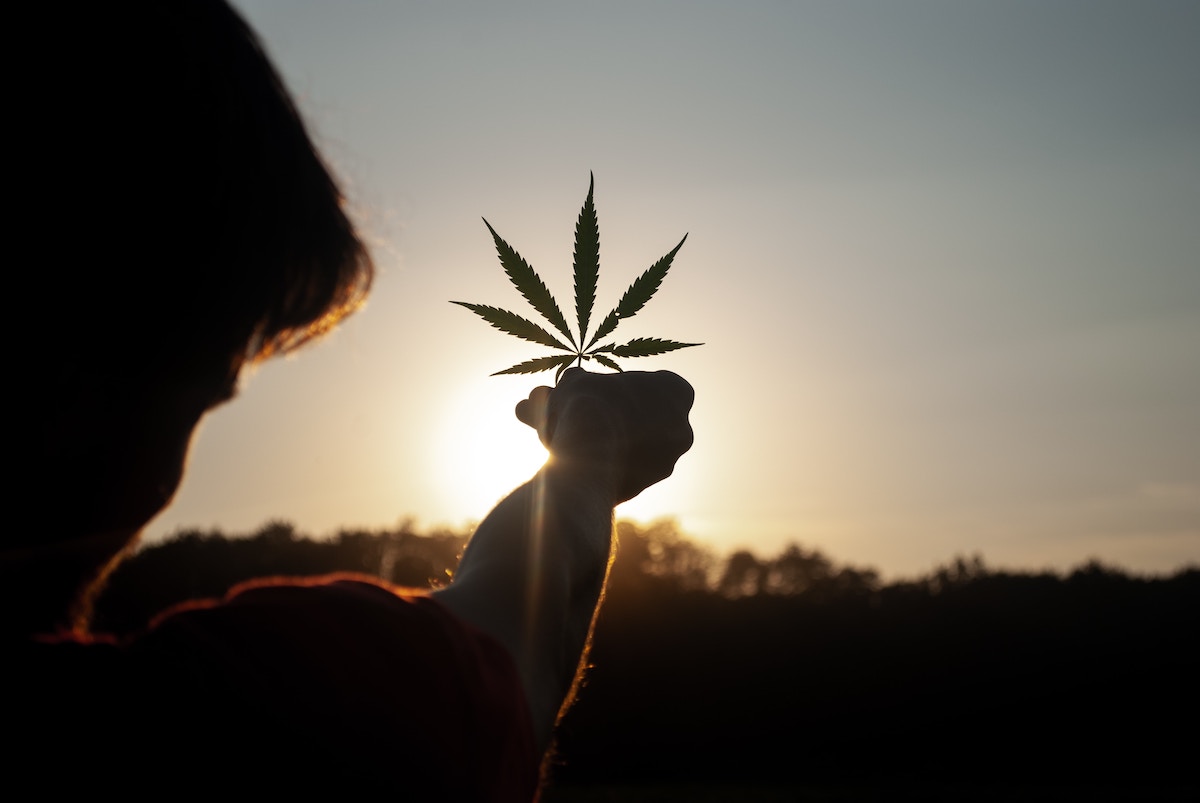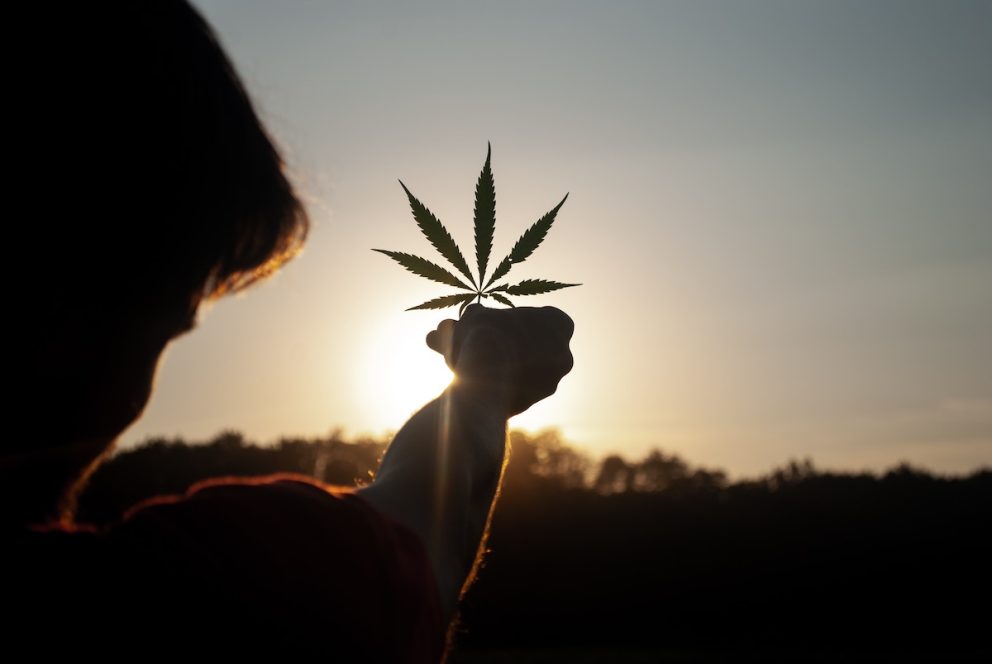
Is Weed Legal in Arizona? Plus AZ Weed Laws & Arizona Marijuana Legalization Efforts in 2023
 Photo by David Gabrić on Unsplash
Photo by David Gabrić on Unsplash
Is Marijuana Legal in Arizona?
The short answer is no, weed is not legal in Arizona for recreational use, but some forms of medicinal marijuana are legal and available for purchase at medical marijuana dispensaries. In order to access these dispensaries, you must first have a medical marijuana card. Click here to apply for one now!
AZ Marijuana Legislation
Attitudes about cannabis are shifting throughout the nation. States are changing their cannabis restrictions and opening the doors to medical marijuana. In some cases, states are even fully legalizing recreational cannabis. What are Arizona’s marijuana laws?
Legalizing weed in Arizona created a whole suite of new laws that can be confusing for the average Arizonian.
- Is it worth getting an Arizona medical marijuana card?
- What are the differences between Arizona’s recreational and medical marijuana programs? What are the restrictions, if any?
- How can you get your medical marijuana card in Arizona?
Arizona has legalized cannabis but what does that mean for the average person? This post covers the ins and outs of Arizona cannabis laws so you can understand your full rights when marijuana is concerned. What’s your best option for legally using cannabis? Is there a benefit to having medical cannabis over purchasing recreational marijuana in Arizona? What gets you the best bang for your buck? Find out and read on.
How Do Cannabis Laws Work?
Marijuana legalization requires significant changes to local law to accommodate an entirely new industry. Before marijuana can be sold, a system must be established to legally disperse it. That’s why there’s three different forms of legalization.
Cannabis can be decriminalized which essentially lightens the penalties for marijuana possession from a major drug crime to a petty offense.
Medical marijuana legalization allows patients to receive marijuana as a medical prescription for a government approved condition.
Recreational cannabis legalization basically opens up marijuana sales in the state and reduces it from a controlled substance to a regulated substance like cigarettes or alcohol. Cannabis legalization in the United States is nuanced and this post explains the various forms of legalization in depth.
Apply for a Medical Marijuana Card Online Today
Join over 100,000 patients who have chosen Green Health Docs as their medical cannabis doctors. We have a 99% approval rate and offer a 100% money back guarantee!
Is Weed Legal In Arizona?
Arizona has chosen to legalize both medical and recreational cannabis. This means weed is legal in Arizona. There are specific laws governing how much cannabis people can possess medically and recreationally. The laws governing cannabis in Arizona can be nuanced so here’s a review of what they are.
Arizona Marijuana Laws
It can take states years to fully implement a cannabis program even when they pass laws to legalize it for medical or recreational use. The laws in Arizona are no different. It can take time for the right laws to come along that allow states to shift their attitudes about cannabis.
As far back as 1996, Arizona voters approved Proposition 200 a.k.a. The Drug Medicalization, Prevention, and Control Act which essentially allowed physicians to prescribe cannabis. However, this caused friction with state legislators who attempted to repeal it. In 1998, it was reinstated.
One major issue was the language conflicted with federal law which made it challenging to actually implement. Interesting fact, a major sponsor of this proposition was the founder of The University of Phoenix John Sperling.
In 2002, there was an attempt to decriminalize cannabis with Proposition 203, aptly named the Decriminalization of Marijuana Initiative. It not only sought to downgrade marijuana possession to a finable offense it also had language about the state providing marijuana free of charge to people prescribed medical marijuana. This may be why this initiative failed.
In 2010, a different Proposition 203, the Arizona Medical Marijuana Act, formally legalized medical marijuana. This switch shows how potentially dangerous and contentious it is for certain laws to be passed without thought to their repercussions.
Had the original Prop 203, passed it would have not just decriminalized cannabis but opened up a can of worms of the state providing free cannabis to residents. This would essentially undercut a major market.
The latter Prop 203, fully outlined the specifics of the medical marijuana program including how much cannabis patients could keep on their person, what conditions allowed for cannabis prescriptions, and the management of dispensaries. It also established it was still illegal to smoke cannabis, one could not have cannabis in a hospice, and other regulations.
Governor Jan Brewer was opposed to this measure and two years later as the program was being implemented signed a bill making it illegal to possess cannabis on college campuses. In May 2018, that law was deemed unconstitutional to the delight of Arizona college cannabis enthusiasts.
In November 2016, Proposition 205 a.k.a. Arizona Marijuana Legalization attempted to legalize the recreational use of cannabis but failed to secure the vote. In November 2020, Proposition 207 a.k.a. The Smart and Safe Arizona Act and the Marijuana Legalization Initiative formally legalized recreational cannabis.
Additionally, Arizona law A.R.S. § 36-2853 outlines which forms of marijuana possession are considered petty offenses, and A.R.S. § 13-3405 outlines which amounts of marijuana, when found in your possession, are considered felonies.
It’s also important to note that it remains illegal to use cannabis in public and driving while impaired by marijuana remains illegal.
Arizona Marijuana Legalization
There were two major moments for Arizona’s marijuana legalization:
On November 2, 2010, with the passage of Proposition 203, medical marijuana was formally legalized.
As of November 3, 2020, with the passage of Proposition 207 recreational cannabis was legalized. The first state-licensed sales did not officially occur until January 22, 2021. This is a very short period compared to other states. It’s likely due to the fact that Arizona’s had medical marijuana legalized since 2010.
Despite recreational cannabis being legalized there are still limitations. For example, medical marijuana patients can only purchase/possess up to 2.5 oz of cannabis in a two-week period, while recreational users are limited to just 1 oz every 2 weeks.

Photo by Damian Barczak on Unsplash
Is Recreational Weed Legal In Arizona?
Recreational cannabis has been legalized in Arizona as of November 3, 2020. However, recreational users can only have 1 oz of cannabis. If they’re found in possession of more they run the risk of criminal prosecution.
According to A.R.S. § 36-2853, possession of less than 2.5 ounces is considered a petty finable offense with a three-strike policy. Meaning you may only face heavy charges the third time you’ve been charged with the petty offense.
Medical Marijuana Arizona
Arizona’s medical marijuana program has been in practice since 2012. It’s fairly simple to obtain your medical marijuana card. If you need help click here. The program is managed by
The Arizona Department Of Health Services.
Currently, Arizona has approved medical cannabis to be prescribed for the following conditions:
- Post Traumatic Stress Disorder
- Cancer
- Glaucoma
- Human Immunodeficiency Virus (HIV)
- Acquired Immune Deficiency Syndrome (AIDS)
- Hepatitis C
- Amyotrophic Lateral Sclerosis (ALS)
- Crohn’s Disease
- Alzheimer’s disease
- A chronic or debilitating disease or medical condition or the treatment for a chronic or debilitating disease or medical condition that causes:
- Cachexia or wasting syndrome
- Severe and chronic pain
- Severe nausea
- Seizures, including those characteristic of epilepsy
- Severe or persistent muscle spasms, including those characteristic of multiple sclerosis
While this list may not be as comprehensive as other states, there is a process for requesting your conditions be added to the list of approved conditions. In January and July of each year, the Department will accept written requests to add medical conditions to the list.
Requirements to complete a request include:
- The name of the medical condition or the treatment to be added
- A description of the symptoms and how they make it hard to do daily living activities
- The available conventional medical treatments that provide therapy or treatment for said condition.
- A summary of the evidence marijuana will provide therapy or comfort for the medical condition
- Articles, published in peer-reviewed scientific journals, report research on the effects of marijuana on the medical condition or as a treatment for the medical condition which essentially proves why it should be added.
What Are The Benefits Of Medical Marijuana vs. Recreational Marijuana In Arizona?
There are a few benefits to having a medical marijuana prescription over simply utilizing recreational cannabis. Recreational cannabis users can only possess 1 oz of cannabis per 14-day period while medical marijuana patients can possess and purchase 2.5 oz.
Medical patients can also dodge the 16% excise tax associated with cannabis purchases. They also can have cannabis legally delivered to them while delivery has not yet been established by Arizona.
Recreational cannabis is only available to people 21 and over, for people underage who may need cannabis for health reasons, they can apply for a medical marijuana card and successfully receive treatment.
Also, medical marijuana registration can help employees. While recreational cannabis can be legal, employers have their right to a drug-free work environment according to A.R.S. § 36-2851 subsections (1), (2), (6), (7), and (9).
For medical cannabis patients, unless a failure to do so would cause an employer to lose a monetary or licensing-related benefit under federal law, an employer may not discriminate against a person in hiring, termination, or imposing any term or condition of employment for having a medical marijuana card or testing positive for cannabis in a drug test.
This is unless they are impaired by marijuana on the premises or use cannabis in their place of employment or during the hours of their shift.

Photo by 2H Media
Arizona Medical Marijuana Card
In states with recreational cannabis, people may want to avoid the hassle of signing up for a medical marijuana card. However, with the right help, the process can be very simple.
For regular cannabis users, especially people who need it for health reasons, the ability to have more and avoid heavy taxes can be highly beneficial.
To sign up for your card, begin your application here.
Patients require written certification from a physician (medical doctor, osteopath, naturopath, or homeopath licensed to practice in Arizona) with whom they have a physician-patient relationship. The Arizona Department of Health Services (Department) will provide a form that will be required to be filed within 90 days before submitting an application for a registry identification card.
With written certification, patients can begin their application. The cost for a standard cannabis registration card is $150 for an initial or a renewal registry identification card for a qualifying patient. Some qualifying patients may be eligible to pay $75 for initial and renewal cards if they currently participate in the (SNAP) Supplemental Nutrition Assistance Program.
For caregivers, the cost is $200, and they’ll need to apply for a new card for each patient in their care.
What Is the Process Like to Get Your Medical Marijuana Card in Arizona?
You may be curious about getting your medical marijuana card but how long will it take? The process is pretty simple and you can receive your card in under a month.
- The process begins by scheduling an appointment with a Green Health Docs provider.
- Telemedicine appointments are available 4-5 days per week and you can typically schedule an appointment within the same week and sometimes even the same/next day.
- At your appointment you’ll meet with your provider. They will decide if you have a condition that marijuana is suitable to treat. If approved, the patient’s written certification can be processed within 24 hours.
- Once you’ve received your written certification, you will have 90 days to complete your registration online with the state. You will need to complete your registration to get your card.
- The state typically approves registration applications within 7-14 business days. Once you have successfully registered with the state, you will receive your physical ID card in the mail within 10 days.
Generally, the total time frame of scheduling your appointment to getting your card can take between 14-24 business days from the date of your appointment.
Dispensaries In Arizona
Medical patients can only obtain their cannabis from nonprofit medical dispensaries,
According to Arizona Revised Statutes (A.R.S.) § 36-2804, the Department may not issue more than one nonprofit medical marijuana dispensary registration certificate for every 10 pharmacies registered in the state of Arizona.
The costs associated with dispensaries include:
- $500 for an initial or a renewal registry identification card for a dispensary agent.
- $5,000 for an initial dispensary registration certificate.
- $1,000 for a renewal dispensary registration certificate.
- $2,500 to change the location of a dispensary or cultivation facility.
Recreational dispensaries are different in that they can operate to the general public including people from out of state.
Arizona Recreational Dispensaries
Arizona’s medical marijuana dispensaries are nonprofits and are fixed in how many licenses are available. They function differently and are only available to medical clients.
Recreational dispensaries are open to the general public. There are more than 73 recreational dispensaries approved in Arizona. In states where recreational cannabis is legal, adults that are of age can show an unexpired form of ID and legally purchase cannabis. Again, the amount people can purchase is fixed at 1 oz. per 14-day period.
Final Thoughts
Arizona has legalized recreational and medical marijuana. While this is not a blank check for residents to purchase as much cannabis this has allowed residents to get a full picture of the many benefits of marijuana.
While recreational cannabis is accessible, for patients who can obtain a medical marijuana recommendation it may be advisable. Being able to avoid heavy excise taxes, have cannabis delivered, and have their own set of dispensaries may be enough to make you want to consider getting your medical marijuana card.
For help in getting your medical marijuana card in Arizona, get help with Green Health Docs.
 This article has been reviewed by Dr. Anand Dugar, an anesthesiologist, pain medicine physician and the founder of Green Health Docs. Graduating from medical school in 2004 and residency in 2008, Dr. Dugar has been a licensed physician for almost 20 years and has been leading the push for medical cannabis nationwide.
This article has been reviewed by Dr. Anand Dugar, an anesthesiologist, pain medicine physician and the founder of Green Health Docs. Graduating from medical school in 2004 and residency in 2008, Dr. Dugar has been a licensed physician for almost 20 years and has been leading the push for medical cannabis nationwide.
